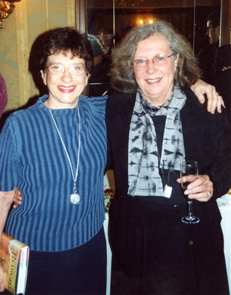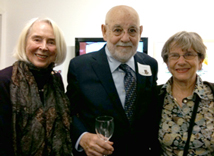What Makes an Editor?

Patti and her editor, Margaret Frith
Traditionally, it was their literary and visual taste that made a great editor, but in recent years business managers would argue that the editor who has a sense of “what will sell” is the most important editor. At Philomel Ann Beneduce, Eric Carle‘s primary editor, was one of the first to discover that an editor could aim for both: literary and artistic quality as well as a book that the public will buy and librarians want. Her book Anno’s Journey by Mitsumasa Anno was almost the first of its kind, breaking out of the library market and right into the trade bookstores. A wonder!
An editor worth her salt has to have courage. To trust his or her taste, and be willing to “sell” it to the rest of the support staff of a publisher – sales, marketing, advertising. I used to say when considering manuscripts that the manuscript had to have two of three qualities for me to consider publishing it: it had to be a richly original story, to approach some kind of new idea; or be created by an author or artist of national literary or artistic stature. Wouldn’t I have loved to have had a Dr. Seuss book! He was kid friendly, had a brilliant mind, both entertained and taught, and was so original that he created characters that became symbols in themselves. “If I ran the zoo I’d make a few changes that’s just what I’d do,” my husband used to say to the family, when he laid out a plan for the family or his colleagues to follow.
An editor, driven by her passion for children’s books, children themselves, and ideas that are transcendent, will take that energy into his or her bookmaking.
